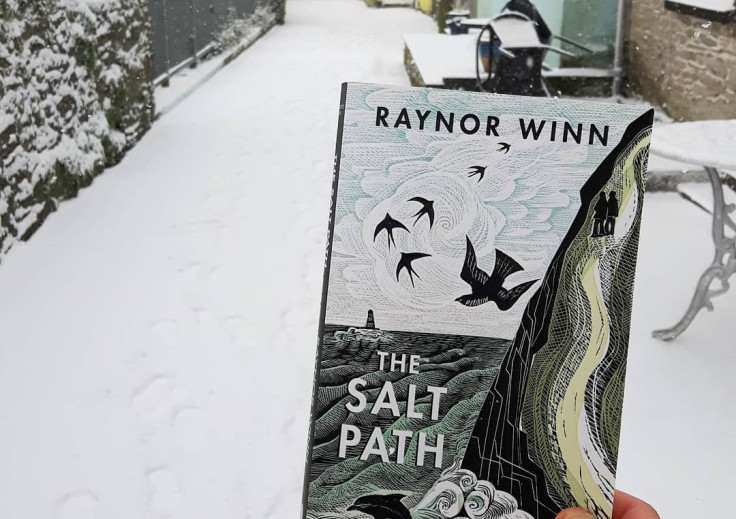Did The Salt Path Bestselling Author Lie About Being Homeless? Writer Also Accused of Embezzling £64K
Raynor Winn's The Salt Path sold over 2 million copies. But new claims about its truthfulness have shaken readers and raised ethical questions

Raynor Winn, author of the bestselling memoir 'The Salt Path', has been accused of fabricating significant parts of her story, including details of her supposed homelessness and her husband's terminal illness.
A report by The Observer revealed that Winn—real name Sally Walker—was alleged to have embezzled approximately £64,000 from her former employer, contributing to the home loss she writes about. It also claims that she and her husband owned a French property during the years they portrayed themselves as destitute.
£64K Theft or Business Failure?
In 'The Salt Path', Winn describes losing her home after a failed investment with a friend. However, the Observer's investigation suggests a different narrative.
According to former colleagues, Walker, then working as a bookkeeper, misappropriated around £64,000. She allegedly borrowed money from a relative to repay the funds and avoid prosecution.
Court documents indicate that the subsequent repossession of their UK home stemmed from failure to repay that loan, not a collapsed business venture.
Home in France During 'Homeless' Years
Winn's memoir paints a stark picture of homelessness. Yet the Observer's documents suggest they purchased property in France in 2007—well before their claimed eviction in 2013—and continued owning it afterward . This undermines the timeline and context of the couple's supposed destitution.
Medical Mystery: Husband's Health Under Question
Central to the memoir is Winn's husband, 'Moth', and his diagnosis of corticobasal degeneration (CBD)—a progressive and usually fatal condition.

The Observer contacted nine neuroscience experts, who reportedly expressed deep scepticism that someone could live 18 years with CBD, suggesting a major inconsistency in the couple's account.
Fallout: Charity Cuts Ties, Film Tour Cancelled
In response to the allegations, the PSPA, a UK charity supporting CBD sufferers, has ended its relationship with the Winns. Winn has also pulled out of her UK book tour for Saltlines.
Despite the controversy, film producers behind the adaptation starring Gillian Anderson and Jason Isaacs said they performed due diligence and were not aware of the allegations when acquiring rights.
Winn Denies Allegations
Winn has responded to The Guardian, describing the report as 'highly misleading' and stating that she is seeking legal advice. 'The Salt Path lays bare the physical and spiritual journey Moth and I shared... This is the true story of our journey,' the statement reads.
This controversy is the latest in a string of high-profile memoir disputes, echoing cases like James Frey's A Million Little Pieces and the fictional persona behind JT LeRoy, where emotional truth clashed with factual accuracy.
The revelations have dismayed many fans who found hope and inspiration in Winn's narrative. One critic told The Times, 'I'm devastated by the Salt Path 'lies'. It meant so much to me', reflecting a broader sense of betrayal among readers.
Why It Matters
Credibility in Memoirs:
The controversy now swirling around 'The Salt Path' casts a long shadow over a memoir that was widely celebrated for its raw honesty and resilience.
Having sold more than two million copies worldwide and been shortlisted for the Costa Biography Award, the book has become a cultural touchstone for readers drawn to stories of redemption and survival.
If key claims are found to be exaggerated or untrue, it raises serious questions about the standards of fact-checking in non-fiction publishing and the responsibilities of memoirists toward the truth.
Ethical Storytelling:
The blurred line between emotional truth and factual accuracy has long been debated in the world of memoir. Winn's account of walking 630 miles along the South West Coast Path while homeless and caring for a terminally ill husband was marketed as a true story.
If parts were knowingly embellished or misrepresented, it could ignite a broader conversation about whether emotional authenticity alone is enough to justify public trust, particularly when readers may be emotionally and psychologically invested in the narrative.
Impact on Readers:
For many, 'The Salt Path' was more than just a good read. It was a lifeline during periods of grief, illness, or hardship. Readers have reported that Winn's journey gave them hope and a sense of purpose.
If those experiences were misrepresented, the sense of betrayal could be profound. The revelations could also damage trust not just in this book but in memoirs more broadly, eroding confidence in a genre built on the premise of lived experience.
© Copyright IBTimes 2025. All rights reserved.





















